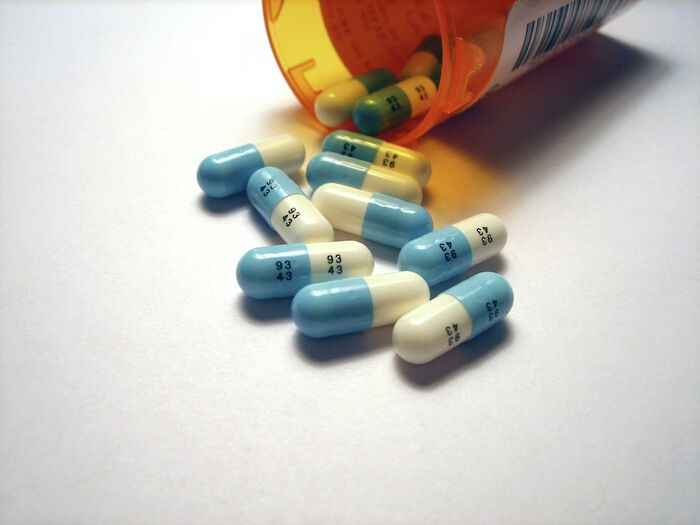Clean eating: Instagram ‘experts’ can negatively skew our view of health
Sam Brown argues that following the advice of Instagram dieticians can do us more harm than good

Rebecca Gawthorne is an Instagram sensation. Her profile is awash with images of raw, vegan, low-fat, and zero-carb meals. Everywhere you look on her page, avocado-on-toast and soy milk predominate, while cheesy chips are nowhere to be seen. “Werk Werk Werk… Healthy eating means increased efficiency & productivity during your work day!”, “healthy snack!”, “I’m a big advocate for fruit!”. The narrative is endless, and, from an outside perspective, it is incredibly daunting and worrying.
“To be sold the unachievable ‘clean eating’ lifestyle is to forever exist in a shadow of underperformance”
For self-proclaimed ‘dieticians’ like Gawthorne, structure and routine is key. They advocate a systematic rejection of the non-organic, the calorific, and the fatty in favour of the idyllically ‘clean’. While it may seem like the Adonic figures of Gawthorne and Ella Mills of Deliciously Ella are promoting diets, in reality they are selling a lifestyle. Summed up, they are implying that a changed diet can change your sense of self: your productivity, your looks, and your intelligence. This promise to improve your future self through nutritional ‘cleanliness’ is dangerous and superficial. To be sold the unachievable ‘clean eating’ lifestyle is to forever exist in a shadow of underperformance, precariously living by a value system that places calorie intake above well-being.
Commercially, Instagram ‘dieticians-come-nutritionists’ have a winning formula. A common theme that crops up in much of their dieting advice is the rejection of gluten-based products, and this has rapidly become standardised in the healthy foods market. The gluten-free food market is soaring and is forecast to grow by 46%, to £560 million, within two years. Alongside this, the NHS wrote over 200,000 prescriptions for low-protein or gluten-free food in 2014. Such evidence points to a ‘consensus’ that many of us will undoubtedly have heard preached: that gluten and carbs are inherently bad. This is far from the truth. As the British Dietetic Association puts it, carbohydrates are crucial; they represent the body’s main energy supply and should make up half of each meal. In our post-truth society, we are so overloaded with information from these various sources that it is near impossible to know what food is healthy and what is supposedly ‘unclean’.
“It is near impossible to know what food is healthy and what is supposedly ‘unclean’”
Part of the issue is the pseudo-scientific way in which nutritionists often phrase their guidance. Mills, for instance, claims in her Deliciously Ella blog that milk ‘can actually cause calcium loss in our bones! This is because milk causes the pH of our bodies to become acidic which triggers a natural reaction in our bodies to bring the pH of our blood back to neutral.’ Written in such a convincing and absolutist style, it is no surprise that some have put last year’s 30% boom in avocado sales down to Mill’s influence.
As you can expect, the ever-growing ‘clean eating’ market is immensely keen to avoid any association at all with anorexia or other eating disorders. Instagram itself seems to maintain this precarious status quo. Type ‘anorexia’ into the social media website’s search and you are rightly treated to a ‘graphic content’ warning. Yet, do the same with ‘orthorexia’ – the term associated with obsessive healthy eating – and over 111,000 posts pop up, showing everything from the incredibly toned and good-looking healthy living ‘success stories’ to sweet potato brownies and celery cappuccinos. It is clearly in the interests of many to direct attention and stigma away from this ‘clean eating’ culture.
Orthorexia is a real issue that is tragically and systematically overlooked in today’s society. In many cases, it is the precursor to – or product of – body image anxieties and eating disorders. In her new book, Orthorexia, dietician Renee McGregor observes that while eating disorders long predate the #eatclean trend, “food rules easily become a guise for restricting food intake”. To eat by the rules imparted on you by the flood of famous nutritionists is, in effect, to restrict your eating and to exclude food groups, which, if taken to the extreme, can be dangerous.
Debates within the psychiatric community over a diagnosis of orthorexia is “a bit of a vicious circle” according to Dr Cynthia Bulik, professor of eating disorders at the University of North Carolina. “It is not a bona fide diagnosis, so there is no research on it; however, since there is no research on it, we know very little about whether it actually should be a disorder,” she says. This has to change now for us to better understand how untrained dietary and nutritional ‘experts’ can negatively skew our perceptions of ‘healthy eating’.
With its associations with the classic millennial dream of achieving mental and physical purity in an increasingly toxic world, ‘clean eating’ has become socially ingrained. While it certainly feeds into the takeoff of veganism and vegetarianism, these eating habits are not dangerous in themselves. Eating healthily is fantastic, but it is crucial that it doesn’t take over your life. As with lots of things in life, moderation is the best guideline to follow
 News / Caius mourns its tree-mendous loss23 December 2025
News / Caius mourns its tree-mendous loss23 December 2025 Comment / Yes, I’m brown – but I have more important things to say22 December 2025
Comment / Yes, I’m brown – but I have more important things to say22 December 2025 News / Cambridge welcomes UK rejoining the Erasmus scheme20 December 2025
News / Cambridge welcomes UK rejoining the Erasmus scheme20 December 2025 News / CUP announces funding scheme for under-represented academics19 December 2025
News / CUP announces funding scheme for under-represented academics19 December 2025 Interviews / Politics, your own way: Tilly Middlehurst on speaking out21 December 2025
Interviews / Politics, your own way: Tilly Middlehurst on speaking out21 December 2025










